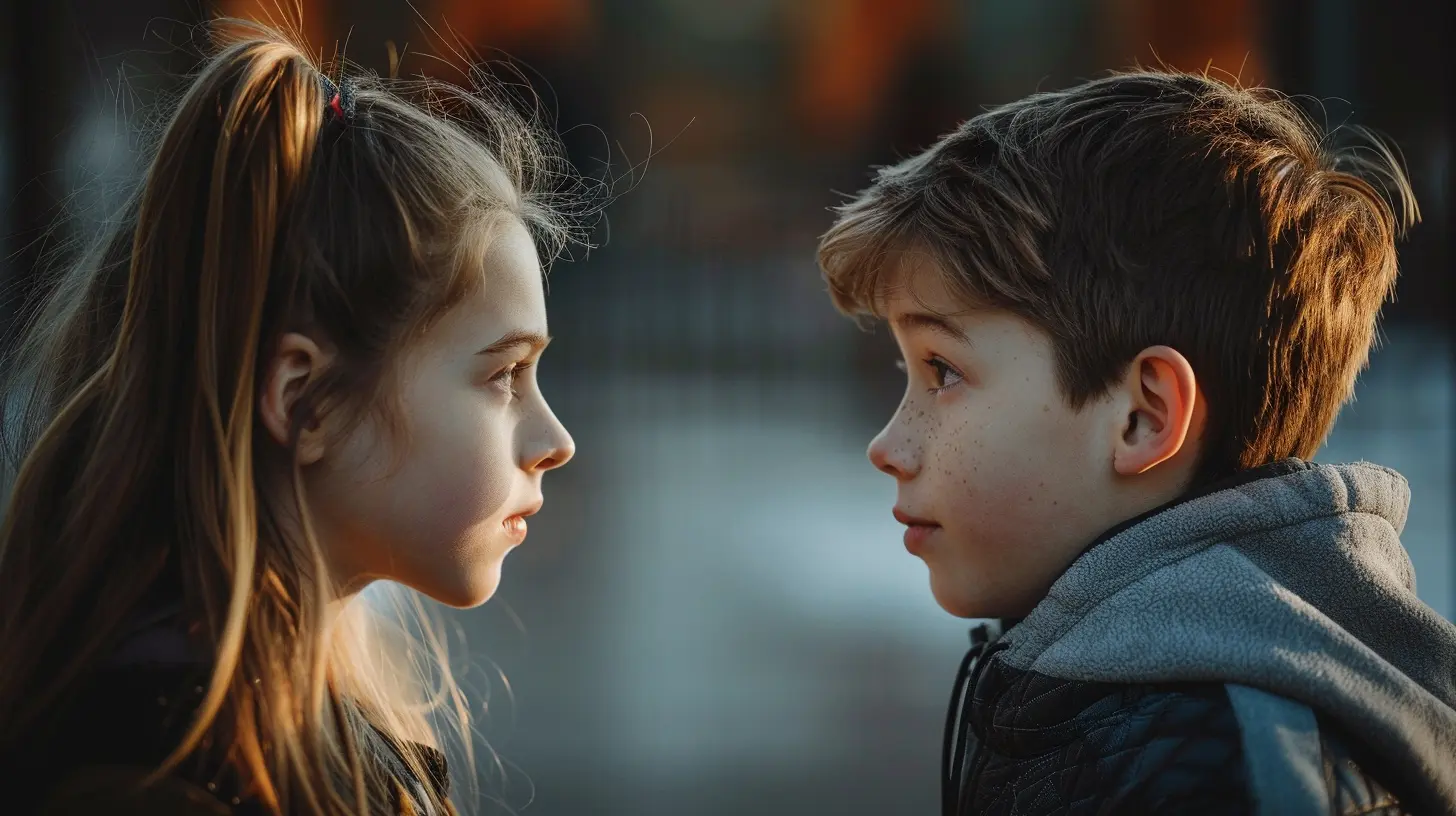Fostering Open Communication About Difficult Topics
24 July 2025
Let’s be honest—talking about hard stuff with your kids can feel like trying to ride a unicycle on a tightrope... in a hurricane. You want to say the right thing, keep it age-appropriate, not freak them out, and still somehow stay calm yourself. Deep breaths. You’re not alone.
Whether it’s the birds and the bees, bullying, mental health, divorce, death, or the ever-evolving world of social media, these conversations matter more than ever. Open communication lays the groundwork for trust, emotional intelligence, and a seriously strong parent-child bond.
So how do we actually foster those meaningful heart-to-hearts without anyone (including us) wanting to crawl under the nearest rock? Let’s break it down.
Why Open Communication Matters
Before we dive into the "how," let’s talk about the "why." Spoiler alert: Children who feel comfortable talking to their parents are better equipped to handle stress, make smarter decisions, and build healthier relationships.Think about it: If your kids don’t talk to you, they’ll talk to someone else—or worse, turn to the internet and its infinite rabbit holes. Open communication gives you a front-row seat to their lives, letting you gently steer when needed instead of playing catch-up after the fact.
Start Early, Talk Often
Don’t wait until there’s a crisis to open the lines of communication. Conversations about values, feelings, and even the tough stuff should be ongoing, not one-time info dumps.A Quick Tip:
Start when they’re young. Talking openly about emotions, fairness, and small everyday challenges builds trust and comfort. That way, when the bigger issues come up, the foundation is already there.
Create a Safe and Judgment-Free Zone
Let’s face it—kids won’t talk if they feel they’re skating on thin ice. Your child needs to know they can talk to you without getting punished, laughed at, or dismissed.How to Build That Safe Space:
- Stay calm. Even if what you hear shocks you, breathe before you react.- Listen more than you talk. Seriously, zip it and just listen.
- Validate their feelings, even if you don’t agree.
- Avoid sarcasm. It’s rarely helpful in emotional conversations.
It’s not about having all the answers; it's about being available and open.
Use Age-Appropriate Language
A 5-year-old and a 15-year-old aren’t going to grasp things the same way. Use language that makes sense for your child’s developmental stage, but don’t dumb things down too much.For Younger Kids:
Stick with simple words and short explanations. For example, “Sometimes people get sick in ways that medicine can’t fix.”For Teens:
Go deeper. Let them ask tough questions and give them honest answers (even if that means saying, “I’m not sure, but let’s find out together”).Ask Open-Ended Questions
If you ask yes/no questions like, “Are you okay?” the answer you’ll get is... drumroll... “I’m fine.” End of conversation.Instead, try:
- “What was the best part of your day?”
- “Is there anything you’ve been worried about lately?”
- “How did you feel when that happened?”
These open-ended questions encourage more thoughtful responses and give you a real window into what’s going on in their heads.
Be Honest (Even When It’s Uncomfortable)
Let’s not sugarcoat everything. Kids are smart—they know when you’re dancing around the truth. Being honest, while still age-appropriate, builds credibility.If the topic is death, illness, or something scary, use real words. “Grandpa died” is clearer than “Grandpa went to sleep forever” (which, let’s be real, can be terrifying for a child).
If you don’t know what to say, it’s okay to admit it. Saying, "This is hard for me too," helps your child see that even adults struggle sometimes—and that’s perfectly normal.
Normalize Talking About Emotions
A lot of us grew up being told to “toughen up” or “stop crying.” But bottling emotions? That’s old-school—and not in a good way.Let your kids see you naming your emotions. Say things like:
- “I’m feeling frustrated today, and that’s okay.”
- “It’s normal to feel sad sometimes.”
When kids see you modeling emotional awareness and expression, they learn to do the same. It’s like giving them a GPS for their feelings.
Use Real-Life Moments as Conversation Starters
The world is full of teachable moments. Don’t wait for a formal “sit-down” conversation (which let's be honest, feels like a lecture).If you’re watching a movie and a character experiences bullying—ask your child what they think. If there’s a news story about a natural disaster or social issue, use it as a springboard to explore deeper topics.
Everyday moments = golden opportunities.
Know When to Pause
Sometimes, a tough topic is too much to chew on all at once. And that’s alright. Big conversations can take time to process. Don’t force your child to talk if they’re not ready.Instead, say something like:
- “I know that’s a lot to think about. We can talk more about it whenever you’re ready.”
Give them space—but keep the door open.
Be Consistent, Not Just Convenient
Talking about difficult topics shouldn’t only happen when problems come up. Make emotional check-ins part of your routine. Whether it’s during dinner, in the car, or before bed, create moments to connect.Consistency builds trust. It shows your child that you're always available, not just when things go wrong.
Admit When You Mess Up
Spoiler: You’re going to mess up. Maybe you’ll overreact, dismiss something important, or say something awkward. The good news? That’s okay.What matters is what you do after. Apologize. Own it. Show your child that being wrong is human, and fixing it is part of growing.
Encourage Their Voice
If you want your child to open up, give them room to express themselves—even if their opinions differ from yours.Let them question things. Let them explore. You don’t have to agree on everything, but showing respect for their thoughts teaches them it's okay to think critically and speak up.
The Role of Empathy
Empathy is the silent glue of communication. It’s not just about hearing their words—it’s about feeling their feelings with them.Say things like:
- “That sounds really hard. I’m so sorry you had to go through that.”
- “I can see why you’d feel that way.”
Empathy doesn’t fix problems, but it makes kids feel understood and supported. And that’s huge.
Recognize the Signs They Need More Help
Sometimes, your child may open up about something that’s beyond your scope—like anxiety, self-harm, or trauma. Recognizing when to bring in a counselor or mental health professional is a critical part of open communication.You don’t have to have all the answers. Sometimes, guiding your child to the right help is the most powerful thing you can do.
Final Thoughts
Let’s face it, fostering open communication about difficult topics isn’t about having perfect answers or never fumbling. It’s about being intentional, present, and brave enough to lean into the tough stuff with love.Your role isn’t to solve every problem or shield your child from every pain—it's to walk beside them through it, talking, listening, and growing together.
Remember, your voice, your honesty, your presence—it all matters more than you probably realize.
So keep showing up. Keep talking. And, most importantly, keep listening.
all images in this post were generated using AI tools
Category:
Raising TeensAuthor:

Austin Wilcox
Discussion
rate this article
1 comments
Nicholas Baxter
This article brilliantly underscores the importance of fostering open communication about difficult topics in parenting. By encouraging honest dialogue, parents can create a safe emotional space for their children, promoting understanding and resilience. Such conversations are essential for navigating life's complexities together. Well done!
August 15, 2025 at 2:57 AM

Austin Wilcox
Thank you for your insightful comment! I'm glad you found the article helpful in highlighting the importance of open communication in parenting.


